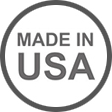Organic vs Synthetic Ingredients in Supplements

Organic substances are those that are found in nature, those that are not man-made. Many supplement products claim to be all natural substances, but in fact may contain synthetic components in their products. There can be big differences in terms of your body’s response to a product based on whether it is organic (natural) or synthetic.
A quick explanation of the difference between organic and synthetic:
- Organic or Natural supplements, high bioavailability – These are components that come from nature, complete with a diverse array of active ingredients and phytocompounds that can only exist from complex organic plants/foods. You can often see organic or all natural supplements in whole or nearly recognizable forms (dried herbs, teas, fruit leather) or in powdered form after being dried completely or in a solution (extract) form such as an herbal tincture (note: a steeped tea is also an herbal extract, just in this instance water is the solvent instead of ethanol).
- Synthetic supplements, low bioavailability – These are supplements and compounds that are man-made, typically in a lab setting. In this format, desired nutrients are isolated and then reproduced. These synthetic compounds are chemically identical with the organic version, however they are not molecularly identical. What does this mean? It speaks to the fact that the components or ingredients may be the same, but they are not necessarily arranged the same.
Having a compound that is made up of all the correct component parts, but is assembled differently, turns out to confuse our bodies. An easy analogy for this are your shoes - the left and right are identical except for their orientation. In molecular terms, this is referred to as “optical rotation”. What rotation is accepted by our body is hard coded into our DNA and is non-negotiable. This is the case with the amino acid arginine, both a right and left handed arginine occur in nature. Both are completely organic compounds, however only one (l-argenine) is bioavailable and active in the body. It’s like trying to force your right shoe on your left foot - only one version is accepted and will work out fine. Any other version, you’ll get tripped up.
Having a whole-food-based or true organic form of a supplement consistently is better recognized and utilized in our bodies. This was shown to be the case when a natural source of vitamin E was twice as absorbed versus a synthetic form in a study. Similarly, natural vitamin K was absorbed 7-8 times more than synthetic versions, and with a higher, more stable blood levels a shown in another study.
We Pledge that our Perfect brand Whole-food Supplements Will Never Contain Synthetic Ingredients











